Be Careful x Small Heart
Lately, I’ve been learning how to read Chinese. Though it was technically my first language, I never learned the writing system. Growing up in the United States, my parents prioritized assimilation, so all the focus was on perfecting my English. But six months ago, I began teaching myself traditional Chinese characters. I’m now reading at an elementary level — and with it, unlocking new dimensions of meaning I never noticed before.
During a recent trip to Taiwan, one phrase kept catching my eye: 小心 (xiǎo xīn). I saw it everywhere — on slippery floor signs, subway stations, street corners. I knew it as “caution” or “be careful,” something I’d heard in passing all my life. It always felt purely functional — a warning, nothing more.
But one day, I paused and looked more closely at the characters. 小 means “small.” 心 means “heart.” Why does “small heart” mean “be careful”? Is there something deeper behind the phrase?
Learning Mandarin isn’t just about expanding vocabulary — it’s about learning how language shapes thought. Some phrases carry entire worldviews. In this case, 小心 isn’t just about avoiding danger. It suggests being present, deliberate, and emotionally grounded — as if holding your heart gently, not letting it spill into recklessness. In Chinese culture, the heart (心) is also the seat of thought and intention — more like the mind.
So 小心 becomes a quiet reminder: be thoughtful. Move with grace. Let your emotions guide you, not overtake you. And be aware of the emotional state of others around you. It’s not fear-based caution, but intentional awareness — a soft discipline for how we engage with the world and each other.
In English, “be careful” can sound abrupt. It’s focused on avoidance. But 小心 can feel like an act of love. My mother still says it to me every time I leave for a trip. I used to find it a bit silly — I’m a grown adult, of course I’m careful. But now I understand: she’s not just warning me. She’s asking me to move through the world with intention, not just precaution.
In reclaiming my language, I’m also reclaiming parts of myself I didn’t know I had lost. I’m learning to slow down, to listen more deeply, to find meaning not just in words, but in the way we use them to care.
Maybe that’s the real lesson: reconnection takes 小心.
Small heart.
Focused mind.
Tender steps.
Intention.
